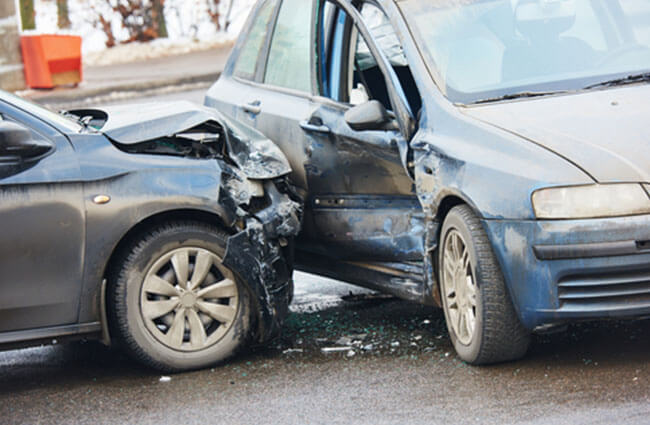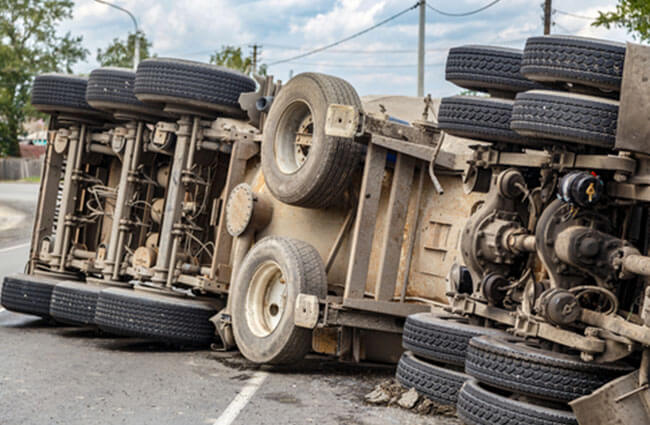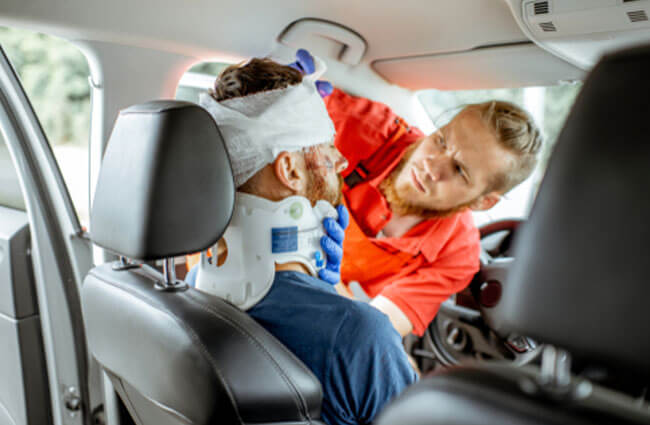Personal Injury Lawyers in La Mesa
If you or a loved one has been hurt in an accident, we know this is a difficult time for you and your family. Often, serious injuries generate substantial medical costs and other financial burdens for injury victims, and you likely have many questions about who will cover the cost of your injuries and how to obtain the money you need and deserve. After all, you were hurt in an accident that was not your fault. Insurance policies are bought and sold to pay for damages in the event of an accident. Right?
Wrong. Insurance companies do everything possible to minimize payouts to policy holders and accident victims. To obtain fair compensation, you need to proceed with confidence and precision when dealing with insurance companies. By choosing Garmo & Garmo, LLP to handle your case, you will benefit from a team of experienced, local La Mesa personal injury attorneys who are committed to protecting your best interests and your right to compensation. We handle all types of accident and injury claims with the same dedication to obtaining the best results possible, quickly and without unnecessary complication.
The personal injury team at Garmo & Garmo, LLP is led by a former doctor, providing us with an incredible understanding of both the legal and medical sides of personal injury cases.
The personal injury attorneys at Garmo & Garmo, LLP have specialized knowledge regarding different categories of injuries, severity of injuries, and how to properly evaluate these injuries to demand fair compensation from insurance companies, or at trial. For example, we have attorney who focus on broken bones, and on amputation injuries. Our lead personal injury attorney, Bill Epstein, is a former chiropractor who specialized in treating car accident victims, slip and fall victims, and dog bite victims. His experience allows our team to handle your case so there is no denying the full extent of your injuries and damages. We will account for current and future medical expenses, rehabilitation, pain and suffering, and more. When the insurance company attempts to minimize your injuries, we will be prepared. We also handle scooter accidents.
Elements of a Personal Injury Claim
Personal Injury claims have a few required elements you must prove to win a case. The main elements of a personal injury claim are:
- Duty. In a personal injury case, there are two parties: the plaintiff and the defendant. The plaintiff is the party who has been injured, and the defendant is the party against whom the claim is being filed. The plaintiff has the responsibility of proving that the defendant owed them a duty of care.
Sometimes, duty is implied; other times, it needs to be established. For example, in a car accident claim, it is implied that all drivers on the road have a duty of care to others on the road—that duty is to operate a vehicle in a way that is safe and responsible. On the other hand, in a premises liability claim, the plaintiff may need to prove that the property owner owed a duty because the plaintiff was lawfully on the property and was not trespassing when they got injured. - Breach of duty. The second element to establish is a breach of duty. Once you have established that the defendant owed you a duty of care, you’ll need to prove that the defendant violated that duty of care.
Referring back to the car accident and premises liability examples above, breach of duty could look like a driver operating their vehicle while intoxicated, or a driver speeding, running a red light, or driving while distracted. For premises liability cases, breach of duty would mean failing to maintain the property in a reasonably safe manner. An example of this would be, failing to maintain safe, dry, and passable walkways. - Causation. Once the two elements above have been proven by a preponderance of the evidence (i.e.,” more probably true than not”), the third element to prove is causation. The Plaintiff must prove that the Defendant’s negligence caused the Plaintiff’s injuries.
- Damages. Finally, the fourth element of a personal injury claim is proving damages. A plaintiff must be seeking recovery for actual losses sustained as a result of the breach of duty/negligence of the defendant, such as medical expenses, property damage, lost wages, etc.
Amount of Losses/Damages Sustained
In addition to thinking about the severity of your injuries, you should also consider the monetary value of the damages you have suffered. Often, these two things are closely related. The larger the amount of damages you have suffered, the more likely it is that your injuries are on the serious side. In such cases, you should consult with a personal injury attorney sooner rather than later.
Types of damages that are recoverable in a personal injury claim you should be aware of:
- Economic damages. Economic damages are damages for actual monetary losses you have suffered. These can be further broken down into the following categories:
- Medical expenses. Medical expenses often make up the bulk of a plaintiff’s damages in a personal injury case. Medical expenses include all costs related to medical care, including surgeries, hospital stays, medications, and specialized treatment. These can total into the hundreds of thousands or even millions of dollars.
- Property damage costs. Depending on the type of accident in which you’ve been involved, you may have incurred property damage costs. For example, if you’ve been in a car accident and your car was totaled, you deserve to be compensated for this cost.
- Lost wages. When you are severely injured and unable to return to work immediately—or, in some cases, ever—you suffer lost wages and a loss of earning capacity and benefits. The full value of these should be totaled and included in your overall economic losses.
- Costs of lifestyle adjustments/in-home medical care. If you have to make lifestyle adjustments or accommodations after your accident as a direct result of your injuries and losses, these adjustments should be accounted for.
- Noneconomic damages. Noneconomic damages are losses that are harder to calculate because they don’t have an actual related dollar value that’s objective. Instead, noneconomic damages are designed to compensate you for the intangible losses you have suffered, such as the value of your:
- Pain
- Suffering
- Emotional distress
- Mental anguish
- Diminished quality of life
Neither economic nor noneconomic damages are capped in personal injury claims. This means that you can recover the full value of both of these losses.
- Punitive damages. Finally, punitive damages are not compensatory in nature, which means that they are not designed to compensate the plaintiff for his/her losses. Instead, punitive damages are designed to punish the defendant. As such, punitive damages are typically only awarded in cases in which the defendant acted with malice, intent, wantonness, or extreme recklessness.
Other Considerations
At this point, you should have a good idea of what situations warrant contacting a personal injury lawyer:
1) You have been involved in an accident that falls within the purview of a personal injury claim.
2) You are able to establish the four elements of a personal injury claim based on the details of your case.
3) You have sustained significant damages in the form of moderate to severe injuries and other losses.
If you are not sure whether you meet these criteria or still have questions, it costs you nothing to consult with an experienced personal injury attorney.
- Strength of the evidence. Remember, you are responsible for proving the elements of the personal injury claim; the defense is not responsible for disproving them—the burden is on you. This means that you’ll need substantial evidence to win your case. The earlier you start gathering evidence and working with an attorney, the better. Video footage, photographic evidence, and eyewitness testimony are some of the strongest types of evidence in a personal injury claim, and they are all easier to obtain if it is still early on after the accident.
- Amount of time that has passed. A very important consideration in a personal injury claim is the amount of time that has passed between the date of your accident and the time that you are contacting an attorney. All states maintain a statute of limitations, which puts a cap on the amount of time that a plaintiff has to pursue litigation after an accident. In most states, the range is anywhere from one to four years from the date that the cause of action accrues. In California, for example, the statute of limitations is two years.
Our clients never pay any upfront fees, and you will not owe us anything unless we recover money on your behalf.
Most personal injury law firms in San Diego County advertise a free initial consultation and promise quality legal representation at no cost until the conclusion of the case. At Garmo & Garmo, LLP, we strive to make your initial consultation valuable to you, and we truly care about obtaining maximum compensation for you, not just covering our expenses. When you meet with us for the first time, we’ll conduct a thorough evaluation of your potential claims, spending enough time at the beginning of your case to put it on the right course. When your case is closed, our goal is for you to have the money you need to overcome your injuries and alleviate your damages.
Plus, unlike many solo personal injury attorneys, our firm has handled hundreds of personal injury cases with success. Our staff is experienced in speaking with all individuals and organizations that may be involved in your recovery, including insurance companies, hospitals, medical care providers, subrogation companies, police departments, fire departments, and ambulance services to ensure your rights are protected.
Contact the La Mesa personal injury attorneys at Garmo & Garmo, LLP — there is no need to add to your stress after an accident when we’re only a phone call away.
We also handle electrocution cases and explosion accidents. For more information about personal injury claims, please call Garmo & Garmo, LLP at 619-441-2500 to schedule your free initial consultation. If you cannot make the trip to our office, one of our attorneys will come to your home or hospital room. We have lawyers and staff members who speak Arabic, Spanish, and Chaldean. We also handle blindness injury cases.
Back to Practice Areas











